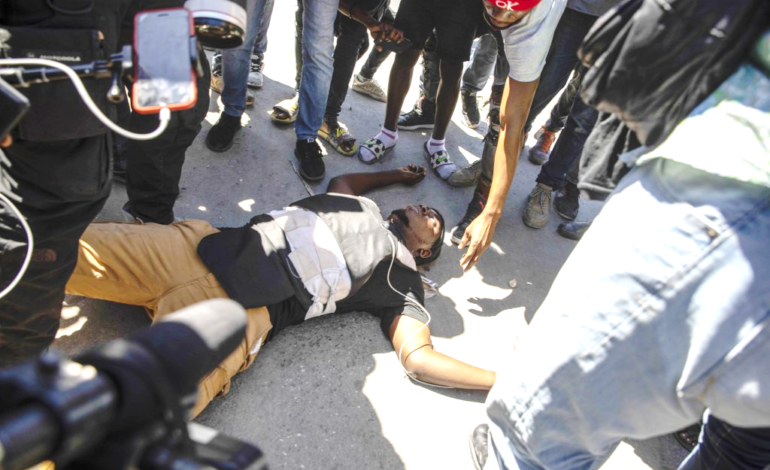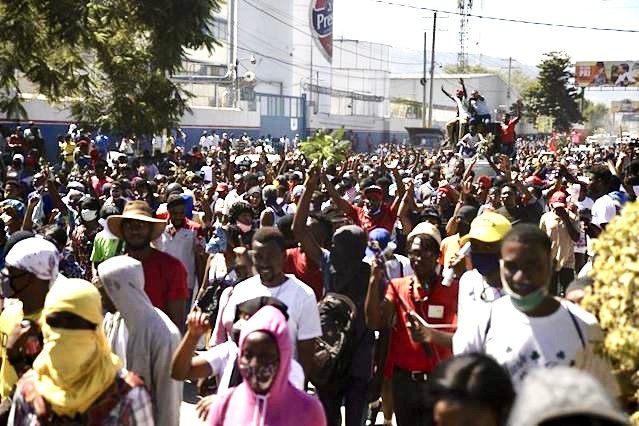
Avellon Williams
PORT-AU-PRINCE, HAITI – Men, wearing police uniforms, opened fire into a crowd of protesters Wednesday, killing a journalist after thousands of Haitian factory workers launched a new strike to demand higher wages than the prime minister announced earlier this week.
As the day’s protest appeared to be winding down, Associated Press journalists witnessed the men firing from a car with police license plates. There were at least two journalists wounded and a third one, Maxihen Lazzare, was killed.
Director of Roi des Infos, a local digital media company which Lazzare worked for, Oméus Romane, said, “What happened today is a big hit for the press.”.
“If the constitution gives workers the right to protest, we as journalists are doing our job.”
Neither the wounded people nor a spokesperson for the police was available for comment.
Prime Minister Ariel Henry tweeted that he deplored the killing: “I also condemn the violence that has caused injuries. I offer my condolences to the family of the deceased, as well as to the other victims of these brutal acts.”

Protesters were throwing rocks at police as they fired tear gas, and trucks blocked a main road near the international airport as protesters made their way to it.
The strike began on the first day of a three-day strike organized by factory workers who shut down an industrial park earlier this month to protest pay, which at the time was about 500 gourdes ($4.80) for nine hours of work each day.
As part of an effort to curb protests, Prime Minister Ariel Henry announced minimum wage hikes on Sunday night. An increase of 185 gourdes a day ($1.80) didn’t seem to make a difference, it only enraged factory workers.
“Can you imagine? I have two kids, and I have to pay for a home,” said 38-year-old André Saintil. “The government is keeping us in misery.”
People can’t do anything with this miserable salary,” said Jean Wilkens Pierre.
According to the 39-year-old factory worker, the salary barely covers food and transportation costs in Haiti, where inflation is double-digit. Despite the low wage, he said he would accept nothing less than 1,500 gourdes ($14).
He was among the crowd that carried tree branches and chanted, “You raised the gas, but not our salaries” in response to the prime minister’s announcement that the government could no longer afford fuel subsidies.

Saintil explained, “They probably think we can’t resist, that we’ll get tired of protesting, but this is going to be an ongoing fight…for them to understand we are human beings.”
The Haitian Association of Industries, shortly after the protest, released a statement disparaging violent acts against factories located in the industrial park and elsewhere and said they would close the factories on Thursday in order to protect their employees and equipment.
As part of the announcement, the prime minister proposed a new daily wage of 540 gourdes ($5) for workers in restaurants and agriculture, and 770 gourdes (more than $7) for those working in supermarkets, car dealerships, and undertakers.





Recent Comments